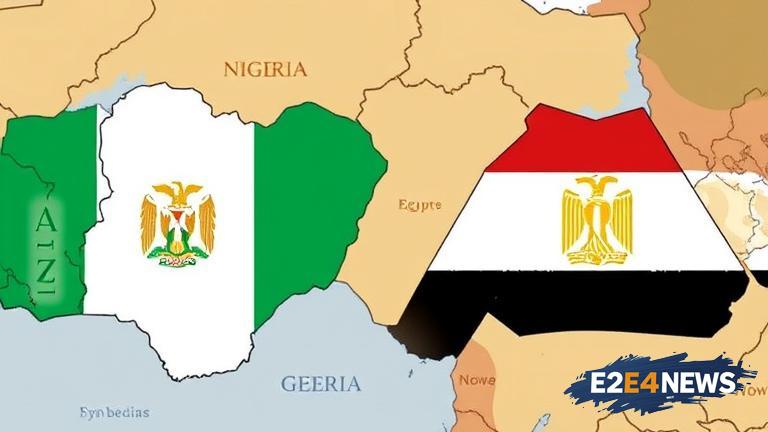Nigeria, the most populous country in Africa, is expected to experience significant economic growth in the coming years. By 2025, the country is projected to surpass Egypt as the third-largest economy on the continent. This growth is attributed to various factors, including the country’s large and growing population, as well as its rich natural resources. The National Bureau of Statistics has reported that Nigeria’s economy has been steadily growing, with a GDP growth rate of 2.3% in 2022. The country’s economy is driven by various sectors, including agriculture, manufacturing, and services. The agricultural sector is the largest employer of labor in the country, accounting for over 20% of the GDP. The manufacturing sector is also growing, with a focus on producing goods for both domestic consumption and export. The services sector, which includes finance, transportation, and communication, is also a significant contributor to the country’s economy. Nigeria is also rich in natural resources, including oil, gas, and solid minerals. The country is the largest producer of oil in Africa, accounting for over 2 million barrels per day. The oil and gas sector is a significant contributor to the country’s economy, accounting for over 90% of the country’s export earnings. However, the country is also diversifying its economy, with a focus on non-oil sectors such as agriculture, manufacturing, and services. The government has implemented various policies to support economic growth, including the Economic Recovery and Growth Plan. The plan aims to stimulate economic growth, improve infrastructure, and increase investment in key sectors. The government has also implemented policies to support the development of small and medium-sized enterprises, which are critical to the country’s economic growth. Nigeria has also made significant progress in improving its business environment, with a focus on reducing bureaucracy and increasing transparency. The country has also invested heavily in infrastructure development, including roads, railways, and ports. The government has also implemented policies to support the development of the country’s digital economy, including the development of e-commerce and fintech. Despite the challenges facing the country, including corruption and insecurity, Nigeria is well-positioned to become one of the largest economies in Africa. The country’s large and growing population, rich natural resources, and strategic location make it an attractive destination for investors. The government’s efforts to improve the business environment and support economic growth are also expected to pay off in the coming years. As the country continues to grow and develop, it is expected to play an increasingly important role in regional and global affairs. Nigeria’s economic growth is also expected to have a positive impact on the rest of the continent, as the country is a key player in regional trade and economic integration. The country’s growth is also expected to create new opportunities for trade and investment, both within the continent and with other regions of the world.
